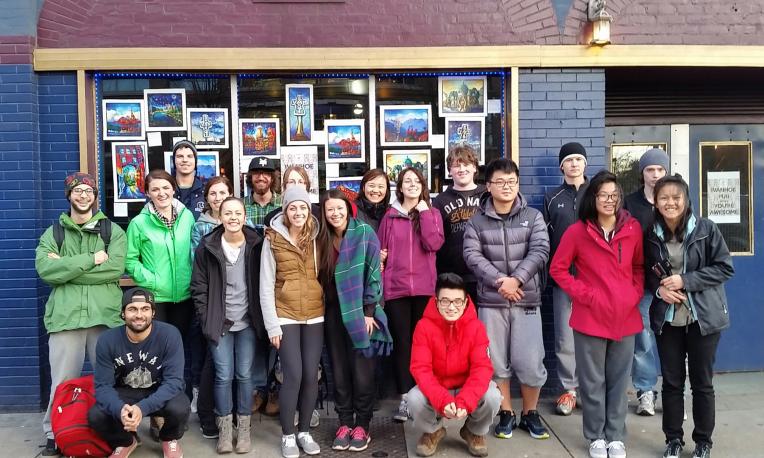
In late November, students from Trinity Western University’s Anthropology 101 class spent three days living among the residents of Vancouver’s Downtown Eastside (DTES). Students joined in soup kitchen line-ups, participated in street ministries, and engaged in casual conversations with locals in the hopes of experiencing life from the perspective of those who live in the Downtown Eastside.
During their stay, students took part in various social agencies and ministries already operating on the ground. By serving with, and being served by, these organizations, the students hope to reflect on and critique the effectiveness of these programs from the perspective of the residents benefiting from these social agencies and ministries.
“A lot of the portrayals of the Downtown Eastside in the media aren’t fair evaluations of the community or the individuals living there,” said fourth year religious studies major Dylan Kelso.
The immersive nature of the field trip encouraged students to practice the principle concepts of anthropological research through participating in the day-to-day activities of residents, many of whom were living on the streets or in low-income housing units. Surrounded by addiction and poverty, the students were tasked with lending an ear to a community often given no opportunity to speak for itself.
The experience, which included a two-night stay in the single-room occupancy Ivanhoe Hotel, challenged students to see homelessness, poverty, and addiction within the framework of the lives and stories of those who face these issues daily. By gaining this new outlook, the students plan to compare the experiences of DTES residents with the perspectives of government and social agencies in the hope of finding the most effective ways to support residents.
Based on their findings, the students will publish a report for the social agencies and ministries currently serving the DTES. It will outline the day-to-day experiences of local residents and make recommendations for practical improvements that the social agencies and ministries could implement to best encourage self-sustaining, long-term solutions to the challenges DTES residents face.
“Even though many of the people in the neighbourhood are living under very difficult conditions, their stories are filled with hopes, aspirations, and dreams much like my own,” Kelso said. “This community has a lot to teach anybody with an ear to listen.”

